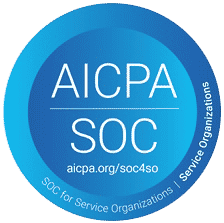There are several proposed bills currently sitting in Connecticut’s House and Senate that, if enacted, would significantly impact employers. With a Democratic majority, it seems likely that these employee reform bills will pass.
Here’s how CT employers can proactively start planning for potential changes to their bottom line.
On-Call Scheduling Penalties? Leverage Analytics.
Senate Bill No. 764 and House Bill No. 6924 would drastically reduce on-call scheduling practices as soon as October 1, 2019.
The proposed legislation would require employers with more than 25 employees to give 72 hours notice for any canceled shifts or reduced hours. If an employer (1) cancels a shift less than three days before the employee is due to start or (2) reduces hours when the employee has already reported for work, those workers would be entitled to half of their hourly wage—for all scheduled hours the employee ends up not working.
On top of this, there would also be an 11-hour break between shifts. If the employee consents to working such a shift anyway, the employer must not only obtain the consent in writing but also compensate overtime (time and a half) for the entire shift.
The final point is probably what would make most companies that rely on paper or spreadsheets to schedule most nervous. Employers would have to keep records showing (1) the shifts worked each day and week by every employee, (2) each employee’s schedule, and (3) any changes to an employee’s schedule. This information needs to be kept for no less than three years for audit purposes. That’s a lot of record-keeping!
The on-call scheduling bill boils down to holding organizations monetarily accountable for overscheduling. If you are only staffed to match what you need, however, this will not be a problem. You can achieve this with an automated scheduling tool.
By leveraging automation, you could have real-time labor demands right at your fingertips at the point of scheduling. When the scheduler can quickly assess what their spread looks like, they can proactively control for any gaps (or remove people from an overcrowded shift before the schedule is finalized). Real-time analytics make it easier to determine when it’s time to schedule overtime for qualified employees, bring on temp workers, or relieve a few people from their shifts. Information is automatically centralized and easily accessible for audit purposes, too—that record-keeping nightmare is solved!
You’ll accurately project demand needs and schedule your shifts accordingly, making your on-call process obsolete.
Minimum Wage Increase? Paid Leave? Reduce Unnecessary Costs.
Bills are floating around that propose to increase the current minimum wage of $10.10 per hour to $15.00 incrementally over the next several years. The bills differ based on how gradual that increase will be. Senate Bill No. 2 and House Bill No. 5502 propose more swift increases: $1.50 increase each year between 2020 and 2022 to reach $15 by January 1, 2022. Meanwhile, Governor’s Bill No. 71791 grants companies an extra year to hit $15 by January 1, 2023.
Besides the proposed minimum wage increases, Senate Bill No. 1 and House Bill No. 5003 would grant employees more flexible paid family and medical leave by broadening the scope of eligibility. It would apply to most employers with at least one employee, as opposed to the current minimum threshold of 75. The Family and Medical Leave Insurance Program would offer up to 12 workweeks of 100% compensation replacement (capped at $1,000 per week) to covered employees in any 12 months. There is an additional two weeks of compensation for serious health conditions resulting in issues during pregnancy.
In summation, extra expenses are coming your way if even one bill gets passed. If you start looking at your workforce management processes more strategically, however, you can cut costs elsewhere to level out your bottom line. Reducing overtime and keeping compliant to ensure you don’t get hit with hefty fines are two quick wins you can achieve.
Improve Overtime Management With Indeavor
If any of the bills pass, you’ll need to keep scheduling records. You’ll need to get a handle on employee and facility data to curb overscheduling. You’ll need to better manage overtime to keep up with the wage increases. You’ll need Indeavor.
Click here to request a demo.







